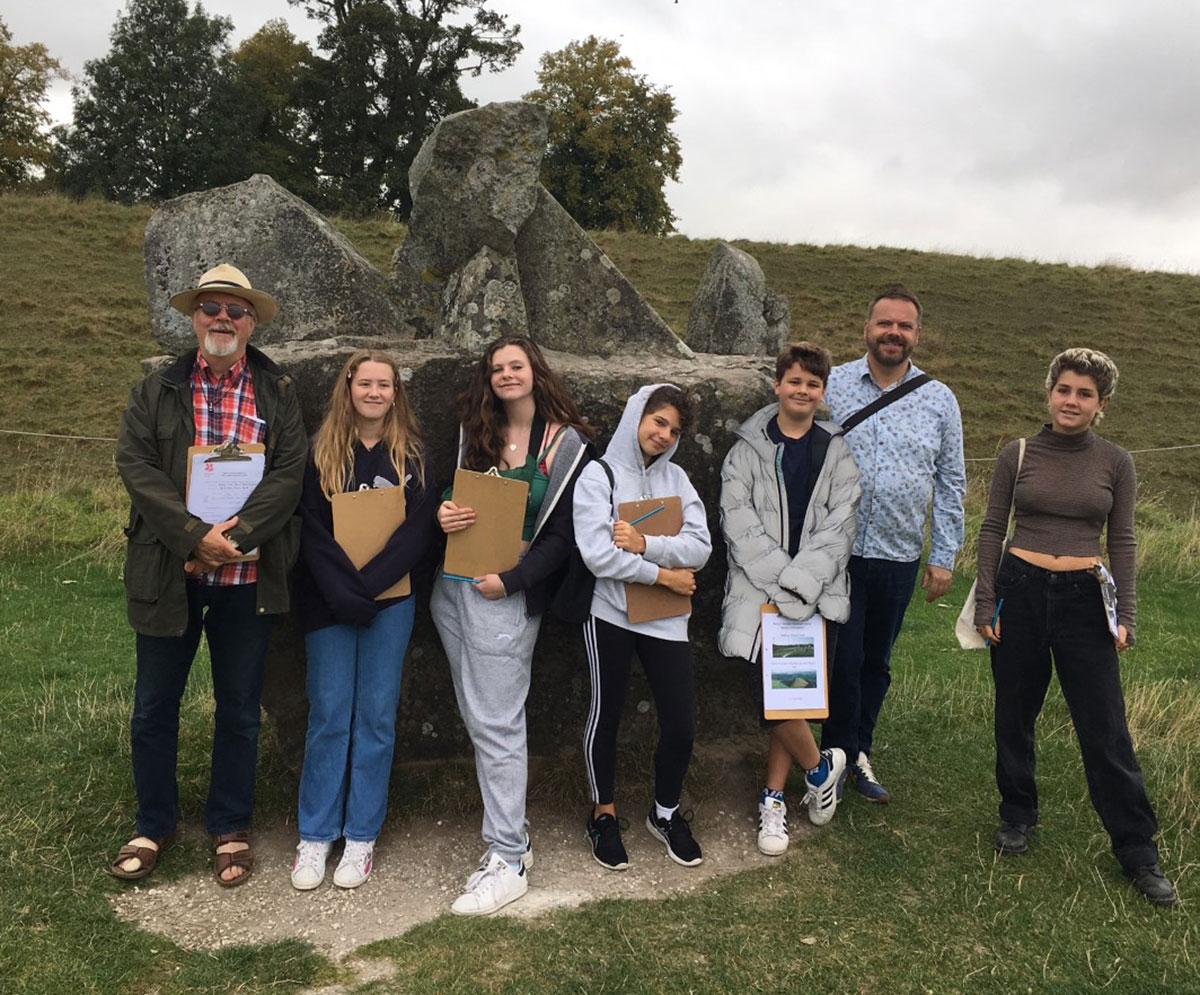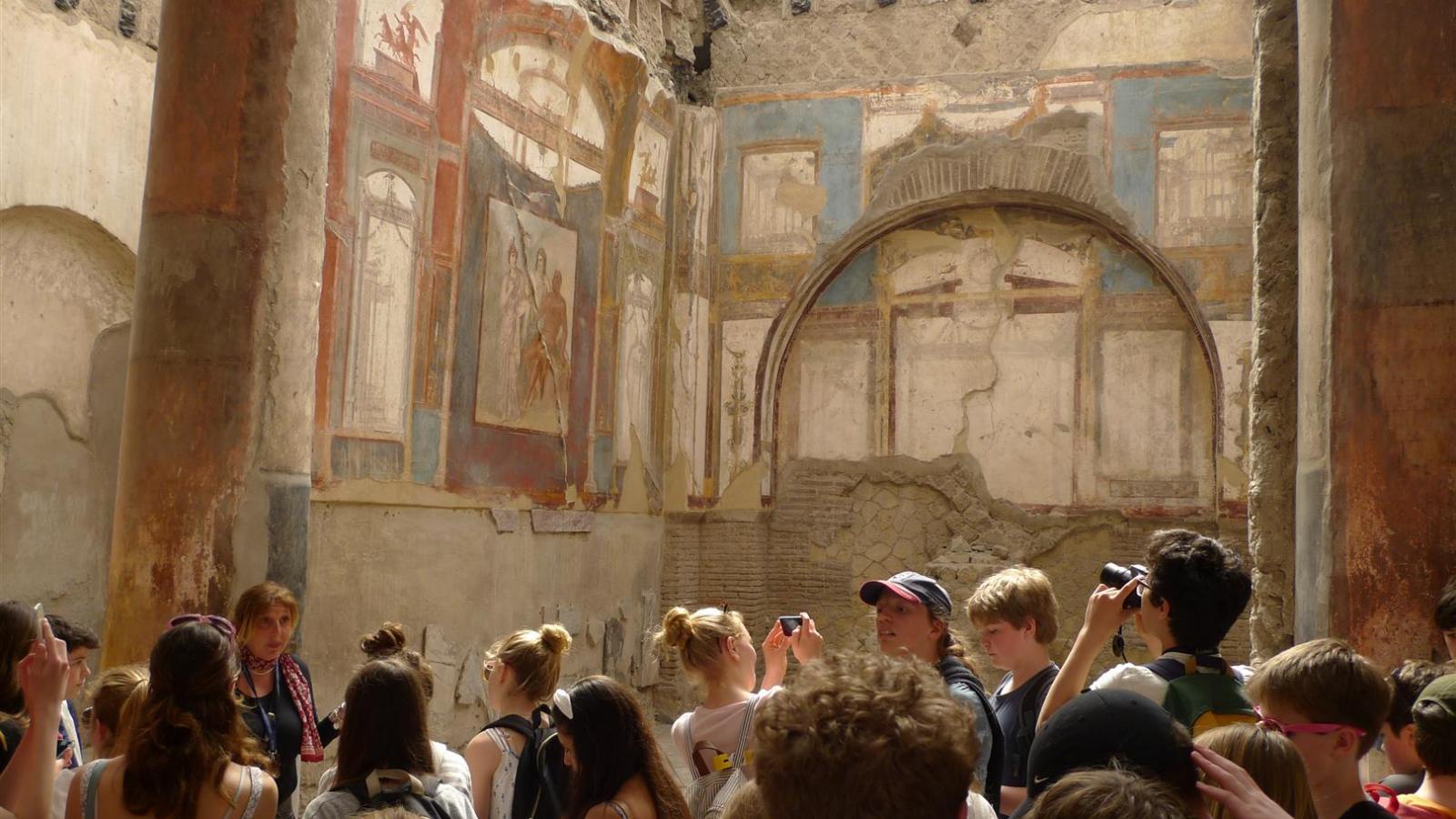In Blocks 4 and 5 (Years 10 and 11), students can opt to take the Bedales Assessed Course (BAC) in Ancient Civilisations. As well as work done in lessons, there are visiting speakers to Bedales to enrich our appreciation of the ancient world, involvement in competitions and trips to classical sites.
Students who take the BAC can further their study in Sixth Form with the Classical Civilisation A Level, which is also open to students who have not previously studied classics but are interested in studying a new subject.

- Blocks 4 and 5 (Years 10 and 11)
- Sixth Form
BAC Ancient Civilisations
Ancient civilisations are the foundation of modern ones, and their relevance can be found everywhere. This Bedales Assessed Course introduces students to the history, literature, art and societies of several ancient civilisations in the Mediterranean area and beyond. Their interactions with each other, and their legacy to us, are studied through topics such as Greek Tragedy, Roman Britain, the invention of history as the Greeks confronted a rival civilisation in the Persian Wars, the development of architecture from Stone Age Britain through Egypt to Greece, the achievement of Alexander the Great, and the roles and status of women across Celtic, Egyptian, Greek and Roman societies. There is ample opportunity for students to explore topics through independent learning and practical activities. Assessment includes traditional testing, project work, and controlled assessment tasks.
At Sixth Form, Classical Civilisation is a standalone course either open to those who wish to try something new at A Level or for committed students of the BAC in Ancient Civilisations who wish to enlarge their study of the classical world.
Classical Civilisation
Classical Civilisation allows students to experience the legacy of Greece and Rome without the need to learn Latin and Greek. It can be studied on its own but it complements other subjects involving the study of literature, history and art.
Three modules are studied: the core of the course is The World of the Hero, which involved studying Greek and Roman epic poetry and is worth 40% of the paper. Two additional modules are worth 30% each, one entitled 'Culture and the Arts', and the other 'Beliefs and Ideas'. Within these components, specific modules are available covering topics such as Greek Theatre, Greek Art, The Invention of the Barbarian, Love and Relationships, Athenian Democracy, and several others. The exact modules on offer will vary according to staff availability and student preference.
A Level Classics offers a good foundation for Classical Studies and Ancient History at university, and in recent years students have gone on to pursue Classics and Ancient Languages at Cambridge, UCL, Dublin, Durham, Edinburgh, Manchester, Birmingham, Bristol, and St Andrew’s, to name the most recent. Students will ideally have attained at least a B grade in GCSE (or equivalent) English Literature, History or Ancient Civilisations.
Examining Board: OCR
Acting Head of Department: Mary-Liz Houghton

